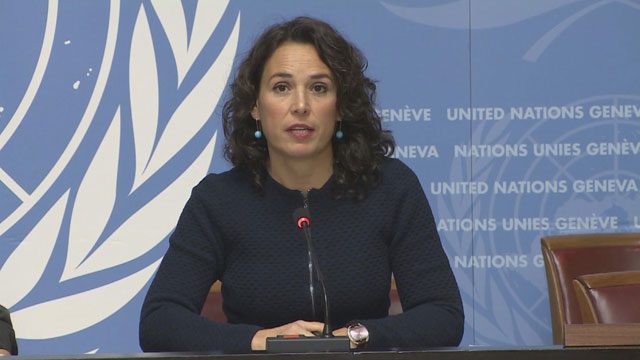
The United Nations says armed groups linked to criminal activities are targeting human rights defenders who work with Indigenous groups and Afro-Columbians in “staggering” numbers and is calling on the Columbian government to make a “strenuous” effort to prevent these attacks.
“According to our records, 107 activists were killed last year, and our staff in Colombia are still in the process of verifying 13 additional cases reported during 2019 which, if confirmed, would raise the annual total to 120 killings,” said the spokesperson for the UN Commissioner for Human Rights Marta Hurtado in a statement. “The vicious and endemic cycle of violence and impunity must stop.
“Victims and their families have a right to justice, truth and reparations.”
According to the UN, attacks on human rights resulted in 115 deaths in 2018.
The statement said the great majority of the 107 killings in 2019, happened in rural areas, almost all (98 per cent) in municipalities with illicit economies where criminal groups or armed groups operate, and 86 per cent of the total number took place in villages with a poverty rate above the national average.
According to the U.N. and reported by VOA News, five Indigenous people were killed and six others injured in Taceuyo in southwest Columbia. “Among the victims is a prominent human rights defender, Cristina Bautista,” the VOA news report said.
“The single most targeted group was human rights defenders advocating on behalf of community-based and specific ethnic groups such as indigenous peoples and Afro-Colombians,” said Hurtado.
Ten have already been killed in 2020 according to the UN.
According to the statement, the contributing factors including “the penetration of criminal groups and armed groups linked to illicit economies in areas vacated by the FARC-EP, and the favouring of a military response from the Government to control the violence.
“The continuous challenges in the implementation of the Peace Agreement, especially the dismantling of groups with paramilitary links, the security situation in communities affected by the conflict, land restitution and rural reform, illicit crop substitution programmes, and fulfilment of victims’ rights have also played a role,” said Hurtado.
Amnesty International called what is happening in Columbia as a “killing ground for human rights defenders, especially Indigenous and other community leaders.”
The human rights organization is calling on Canada to use pressure, including economic pressure, to get the Columbian government to act.
“Canada must use every opportunity to exert pressure for advances, using the leverage we have as a major donor to peace-building in Colombia and a partner in the Canada Colombia Free Trade Agreement,” said Kathy Price is Amnesty International’s Columbia campaigner. “Amid so much bloodshed, it cannot be just ‘business as usual’.
“Our government must ensure that Canadian investments in resource extraction are not fueling conflict, exacerbating violence or benefiting from the silencing of opposition with bullets.”
According to a spokesperson at Global Affairs, “Canada strongly condemns targeted violence against human rights defenders and community leaders in Colombia, which have disproportionately affected Indigenous and Afro-Colombian communities.”
In 2008 Canada signed a free trade agreement with Columbia that covers wheat, beef, paper products, heavy equipment, investment, mining, oil exploration, printing and education.
“Government of Canada representatives engage regularly with Colombian civil society and human rights leaders and maintain a close dialogue with the Human Rights Ombudsperson,” said Spokesperson Barbara Harvey at Global Affairs. “Canada will continue to work closely with civil society partners and the Government of Colombia to address the particular risks faced by human rights defenders and ethnic minority leaders in Colombia.”
Harvey could not say what specific actions Canada has taken.
Hurtado equates the attacks on human rights defenders to an “assault against democracy.”
“We call on the authorities to redouble their efforts to ensure a free and secure environment for civic engagement and to increase the presence of civil State authorities in rural areas to provide basic services such as health and education,” said Hurtado.
APTN News contacted the Columbian embassy in Ottawa for comment but did not hear back.










